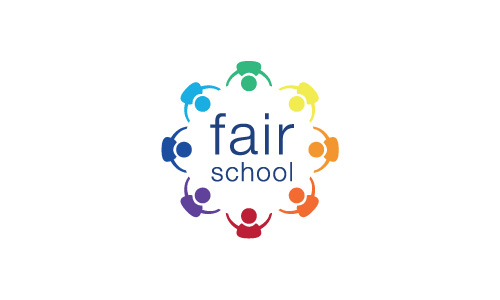Methodological tools developed to improve the integration of migrant origin students
Coordinated by the Universidad Carlos III de Madrid
7/11/22
An ERASMUS+ project led by the Universidad Carlos III de Madrid (UC3M) is developing methodological tools for secondary schools throughout Europe, with the aim of improving inclusion in schools and promoting the integration of migrant origin students. Fair School, as the project is called, proposes a model for improving social cohesion at the school level.

The research team, coordinated by the lecturer Helena Soleto from the UC3M Criminal Law, Procedural Law and History of Law Department, is developing a set of co-curricular activities and practical material aimed at students, teachers and families, to promote intercultural communication and tolerance between migrant and non-migrant students, based on innovative approaches such as restorative practices, which are based on community development through the strengthening of relationships, as well as activities related to social and emotional learning. The methodology developed from the Fair School project involves a comprehensive approach to diversity in the classroom, by bringing together different elements of restorative justice practices, narrative pedagogy and social and emotional learning.
The project will provide schools with a publication containing information on restorative, narrative and socio-emotional theories, case studies, practical tools and strategies for implementation in schools, with specific guidance for the educational community (teaching and counselling staff, students, management, families and inspectors...).
A web platform will also be made available to these staff in order to facilitate the learning of these methods and strategies.
On the other hand, a set of four Serious Games (simulation) will be developed for students to participate in the transformation of schools into more inclusive and safe spaces. “This initiative aims to explore new inclusive methodologies based on the collaboration between schools and civil society organisations, where the University has a fundamental role”, says Helena Soleto
The first phase of the project started at the end of 2020 and was carried out electronically due to the pandemic. Since the end of 2021, various face-to-face activities have taken place. The most recent took place in mid-June 2022 through a meeting of school teachers in Espinho (Portugal). An exchange of experiences on the Fair School methodology took place at this event.
The aim for the coming months is to implement the Fair School methodology in the four schools that are part of the consortium, to evaluate its real usefulness in school communities and plan its subsequent application in other European Union countries.
In developing Fair School, UC3M is working with partners from six countries: the Ignacio Aldecoa Secondary School in Getafe (Spain); the SPEL school network (Portugal); the non-profit organisation SOS Malta; the University of Bialystok and the Princess Anna Sapieha Jabłonowska School (Poland); the Maltepe secondary school and the IAAD research and technological innovation organisation (Turkey); and the private consultancy firm In Dialogue (The Netherlands).
This project is funded by ERASMUS+ and its full name is "Fostering inclusive and fair environment for secondary students at intercultural school settings through a novel pedagogical method based on restorative practices and social & emotional learning" (reference 2020-1-ES01-KA201-083026).